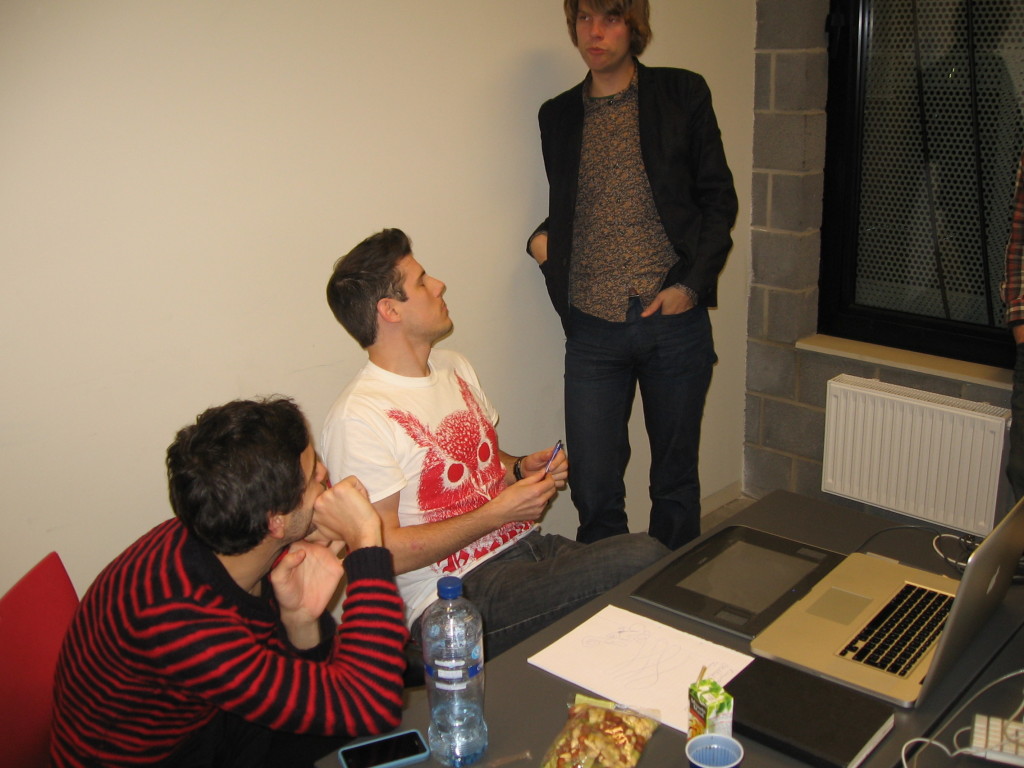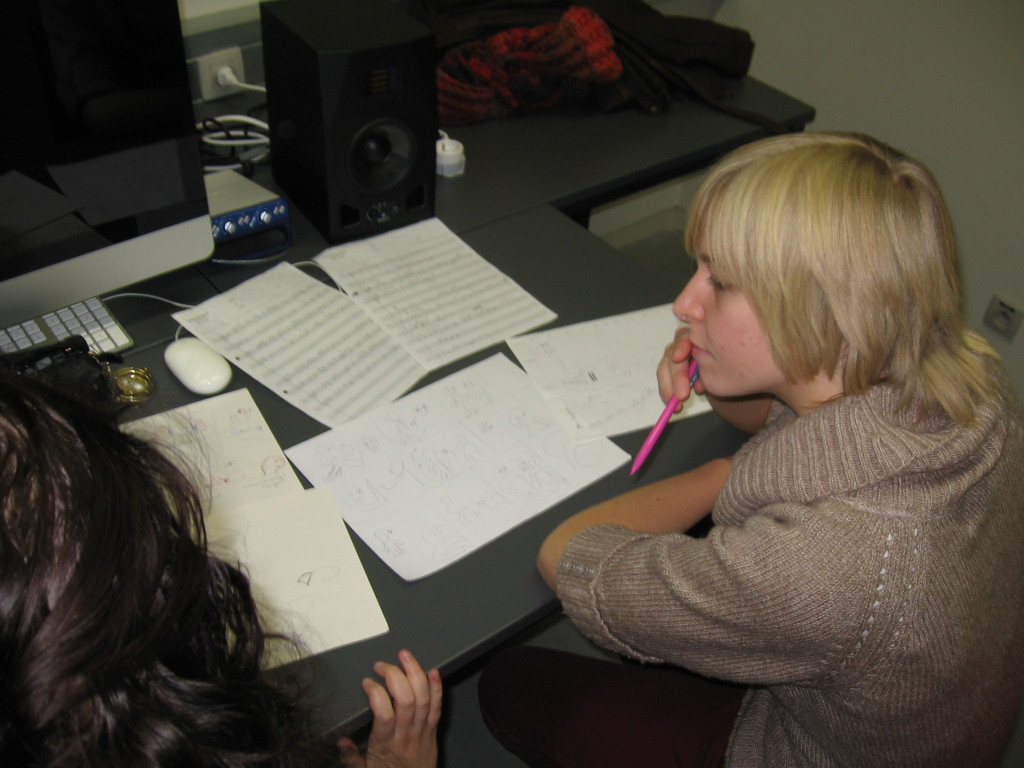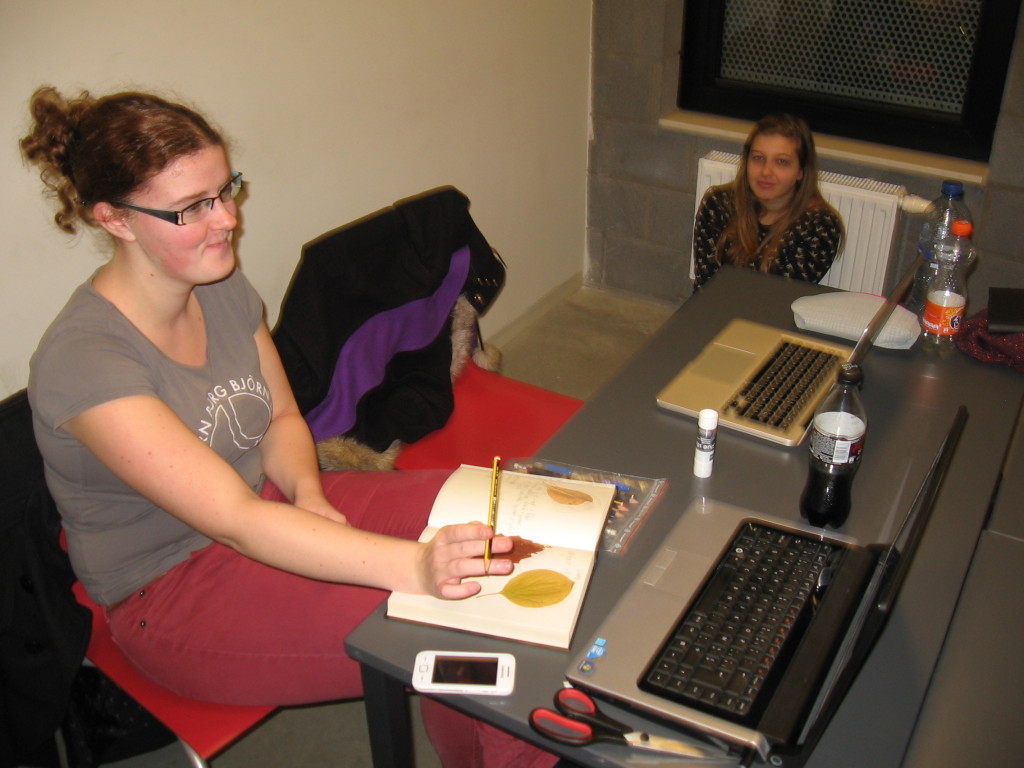Students are immediately thrown in at the deep end: groups are quickly formed based on a speed-dating session, and after two introductory presentations (see: creation of a storyscore, application of the vocabulary) each group is given the assignment to develop a concept. Three sessions of one afternoon are then organised, which take the format of creative workshops:
- The teachers are moving from group to group, to inspire and to provide theoretical or practical advise.
- We encourage them to employ creative techniques from different (artistic) disciplines. Practices such as synesthesia, improvisation and performance art are quickly introduced to bring students in the right frame of mind.
- We encourage them to use all types of materials. Logically this includes drawing paper, musical instruments and computers, but we additionally advise them to explore the school building (and environments) and to search for all types of materials that can be useful or inspiring.

This format brings along a number of benefits that are important in an interdisciplinary context such as this:
- Hands on. We observed that it does not work to provide an extensive theoretical introduction on beforehand. This leaves students with the feeling that they know too little about the other discipline, and restrains them from thinking outside of their own discipline. Within the current format, theoretical context is provided afterwards and on an individual basis.
- Theory is used to inspire, and to further or deepen an initial concept, not to guide the entire production process. In line with methodology on design research, we advise students to iteratively refine their concept based on new ideas and inspirations.

- Safe learning environment. Students need to be able to trust each other and the teachers. It works well to give each group its own small working space, or even to let them choose wherever they want to work (within the school environment). It is also important to point out that they will not only be graded based on the final deliverable. Because a significant part of their grade is based on the documentation of their artistic research trajectory, they do not need to be limited by the question whether they will be able to implement their initial ideas
- We believe that a format such as this will work best with 3rd or 4th year students, who already dispose of sufficient skill within their own discipline and who already have some maturity to adopt a researcher’s perspective.
